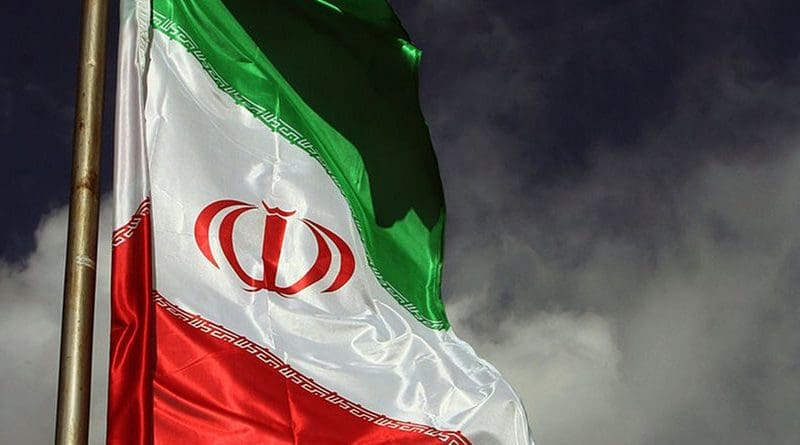Consequences Of Military Attack On Iran – OpEd
By GVF
By Mehrdad Darvishpour
On different occasions, I have warned about the threat of a military attack on Iran; in my opinion, this has never been as serious as it is today. The United States, Israel, UK, France and some Arab states are trying to underlie the military attack on Iran over the claim of terror plot, major media outlets focused on assassination case that one Iranian citizen is suspected to carry out a plan in order to assassinate the Saudi ambassador in Washington DC. So, it prepared the Public opinion for attacking Iran.
Considering the new IAEA report, published to reveal Iran’s secret nuclear activities, analysts have argued that it would legitimate a pre-emptive strike against Iran’s nuclear infrastructure. While the president of Israel is emphasizing the possibility of military strike against Iran, threats to take action with regards to the blood-curdling remarks are on the rise. Moreover, the Islamic Republic of Iran is not likely to respond to the IAEA’s demands and to halt its nuclear activities.
Iran’s reluctance to cooperate with the agency may provide an excuse for Israel to attack its nuclear facilities. In such a situation, it is not clear to me how a military attack on Iran can be avoided. I wonder whether Iran’s reaction, the retreat of Iranian authorities, or the response of international public opinion may help prevent plans to bomb Iran?
I have always opposed militarism and a military strike against Iran as a means of resolving the nuclear stalemate; I also oppose regime change policies imposed by the world’s super powers. I have never believed that humanitarian intervention, as it was carried out in Rwanda and Yugoslavia, might be a solution to the problem of extremism in Iran.
Today certain exiled Iranian opposition elites, directly or indirectly, are encouraging the US and Israel to attack Iran. Of course I have never defended the Islamic republic of Iran, I am one of the earliest victims of religious autocracy in Iran. But I don’t know how it is possible to discuss peace and democracy on the one hand and to simultaneously recommend a military strike on the other? Opposing the death penalty, stressing the peaceful struggle to create change in the state, becoming a respected member of the international community and emphasizing independence; are not consistent with calls for a military attack, which can be referred to as “humanitarian intervention” by with the aid of bombs.
In this regard, I accuse the Islamic republic of Iran of providing a chance for hawks to wage war against the innocent people of Iran. I’d like to address the severe consequences of a military attack. Political activists, who believe in democracy, must highlight peace and peaceful means of bringing change to the state in accordance with the people’s power. Any radical call for change should encourage the people to protest and to call on the international community to support protests more actively. Encouraging western powers to carry out a strike against Iran to bring “freedom” is a tasteless joke. The fate of Iraq and Afghanistan, a decade after invasion, clearly demonstrates the consequences of such action. Iran is neither Afghanistan, nor Iraq, nor Libya.
The very same people who encouraged Iranian protestors to put up with the regime; and called for reforms, have changed their rhetoric recently and are calling for an attack on Iran. Their reasoning is very evident; it does not stem from a concern for democracy, human rights or the people’s demands, but a way of acquiring a good share of political power in the future.
In contrast, I would like to propose a third scenario, which relies on the peace and democracy; because a possible military attack will have inhumane consequences. Any attack on Iran is spreading instability in the Middle East and will severely intensify the suppression of the oppositions in Iran. Calls for military action enhance militarism in the Middle East and the world.
Also, skyrocketing oil prices and economic insecurity are the other outcome of such an attack. Although it is too difficult to accurately foresee the results of an attack—which will be a bombardment of nuclear sites the overthrow of Iran’s Islamic regime—it is obvious what we should do:
1. Opposing military action against Iran.
2. Increasing economic sanctions to force the Islamic Republic of Iran to accept international supervision.
3. Launching a national campaign to stop uranium enrichment by Iran.
4. Calling on the international community to support human rights in Iran.
5. Trying to support the independent, democratic and liberal opposition which neither supports the Islamic republic of Iran nor a military attack.
It would seem that most Iranian intellectuals, academic scholars, national groups and democratic parties could participate in the third solution, which is against militarism and Islamic fundamentalism. The progressive public opinion and most European parties are interested in this solution too. Moreover, the Association of Iranian Researchers recently published a survey, which showed that most interviewees disagree with both a military attack and the regime’s oppression inside Iran; they are seeking peaceful change. This approach is quite powerful in Iranian society; and could be seen as the people’s authority. A possible military attack on Iran will harm civil society. Therefore I firmly believe in the importance of swiftly adopting the third strategy.
Mehrdad Darvishpour is a Professor of Sociology at Mälardalen University
The views expressed in this article are the author’s own and do not necessarily reflect the Green Voice of Freedom’s editorial policy.

